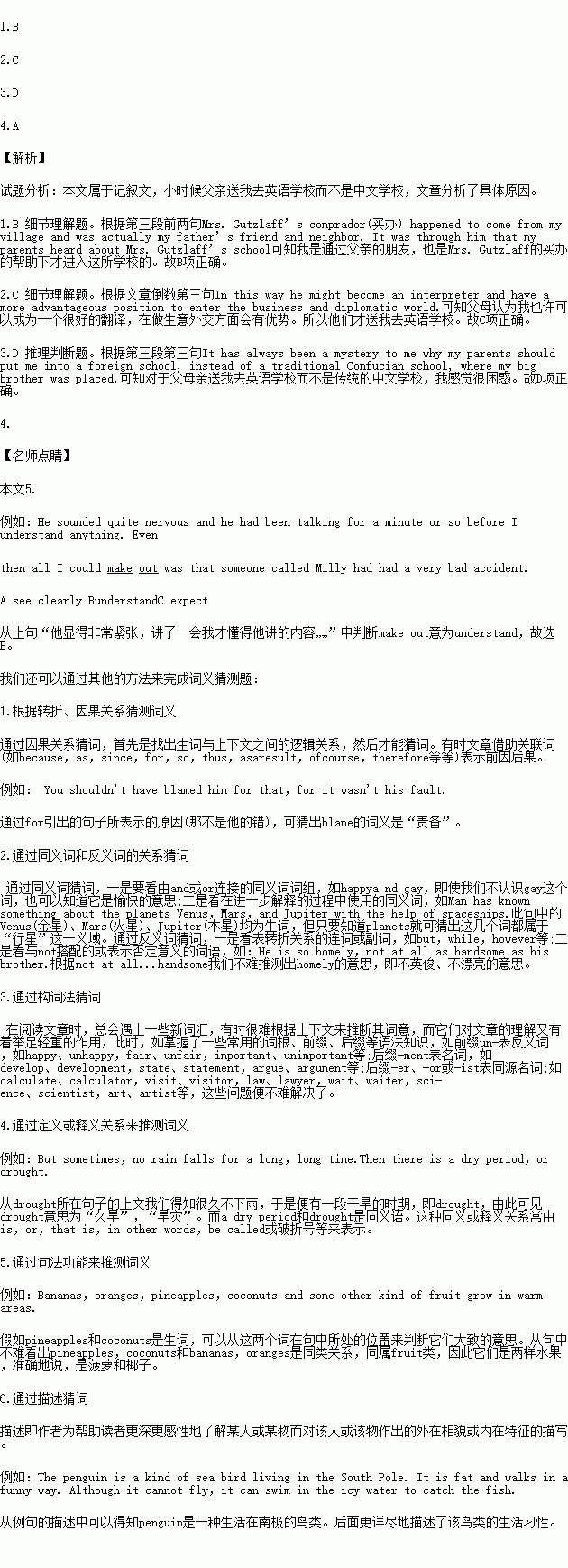题目内容
I was born on the 17th of November 1828, in the village of Nam Ping, which is about four miles southwest of the Portuguese Colony (殖民地) of Macao, and is located on Pedro Island lying west of Macao, from which it is separated by a channel of half a mile wide.
As early as 1834, an English lady, Mrs. Gutzlaff, wife of a missionary to China, came to Macao. Supported by the Ladies’ Association in London for the promotion of female education in India and the East, she immediately took up the work of starting a girls’ school for Chinese girls, which was soon followed by the opening of a boys’ school.
Mrs. Gutzlaff’s comprador(买办) happened to come from my village and was actually my father’s friend and neighbor. It was through him that my parents heard about Mrs. Gutzlaff’s school and it was doubtlessly through his influence and means that my father got me admitted into the school. It has always been a mystery to me why my parents should put me into a foreign school, instead of a traditional Confucian school, where my big brother was placed. Most certainly such a step would have been more suitable for Chinese public opinion, taste, and the wants of the country, than to allow me to attend an English school. Moreover, a Chinese belief is the only avenue in China that leads to political promotion, influence, power and wealth. I can only guess that as foreign communication with China was just beginning to grow, my parents hoped that it might be worthwhile to put one of their sons to learning English. In this way he might become an interpreter and have a more advantageous position to enter the business and diplomatic world. I am wondering if that influenced my parents to put me into Mrs. Gutzlaff’s School. As to what other sequences it has eventually brought about in my later life, they were entirely left in the hands of God.
1.How was the author admitted to Mrs. Gutzlaff’s school?
A. Through his father’s request.
B. Through his father’s friend’s help.
C. Through his own efforts to exams.
D. Through Mrs. Gutzlaff’s influence.
2.Why did the author’s parents put him into an English school?
A. It met with Chinese public opinion.
B. An English school was more influential.
C. He could become a successful interpreter.
D. Foreign trade with China was developing fast.
3.What did the author think of his parents’ decision to put him into an English school?
A. It was skeptical. B. It was wonderful.
C. It was thoughtful. D. It was mysterious.
4.What does the underlined word “sequences” in the last sentence probably mean ?
A. Results. B. Order. C. Series.D. Progress.

